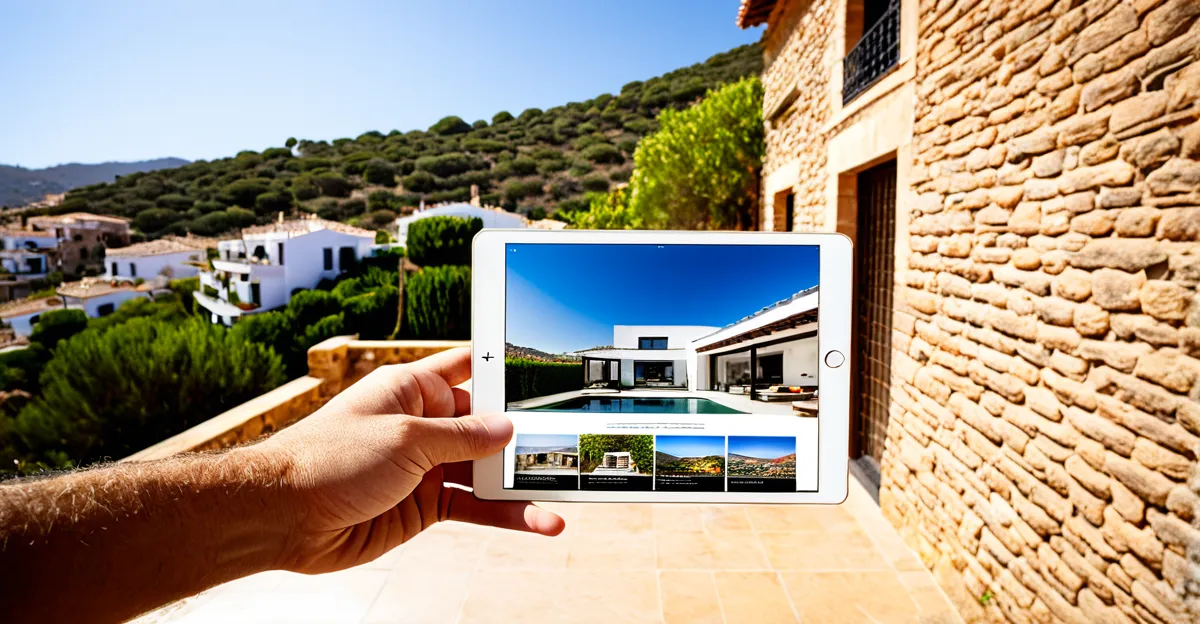Buying property in Spain in 2025 offers exciting opportunities beyond traditional retirement options. With new visa programs for remote workers and a growing appeal to families, understanding legal steps, costs, and best locations becomes essential. This guide breaks down the process clearly, highlighting where to find value and how to navigate financing, taxes, and practicalities for a smooth purchase tailored to your needs.
Fulfilling Search Intent: A Complete Guide to Buying Property in Spain in 2025
Step-by-step Overview for All Buyers
To smoothly navigate the process and find your ideal property in Spain, follow a clear sequence starting with market research. Spain’s real estate market remains appealing for locals and foreign buyers due to robust demand, accessible mortgage options, and diverse regions—coastal, island, and inland communities all feature unique housing opportunities.
Also to read : Discover the Perfect Welsh Getaway Near Ancient Celtic Landmarks: Tips and Insights
Legal requirements are straightforward: you’ll need an NIE (Número de Identidad de Extranjero) for paperwork, and while hiring a lawyer isn’t obligatory, it’s widely encouraged to safeguard your transaction. Expect additional costs (taxes, notary, and legal fees) totaling around 10-15% of the purchase price.
Property types range from apartments and villas to townhouses and country fincas, while professional agents can simplify the process. Mortgage approvals for foreigners often cover 60-70% of the property’s value, and both non-residents and EU nationals have open access to buy.
Have you seen this : Essential tips for purchasing property in spain: 2025 edition
Many buyers now combine home search with lifestyle priorities—beaches, schools, connectivity—while considering future resale or residency options like Spain’s Golden Visa for qualifying investments. The property landscape is dynamic, so decisive action and reliable advice remain key.
Current Market Conditions, Property Types, and Regional Trends
Spanish property market update: trends, demand, and prices in 2025
Demand for Spanish property remains robust, intensified by international buyers seeking a sunnier climate, affordable costs, and lifestyle flexibility. In 2025, the market continues to feel the pressure of limited housing supply—a 16% annual decrease—driving up property values. Forecasts estimate a cumulative price increase of nearly 9% between 2025 and 2026, attributed to shifting demographics, easier residency, and steady foreign investment. Most buyers are attracted by Spain’s compelling mix of Mediterranean lifestyle, lower property taxes, and improved infrastructure, especially in high-speed transport.
Overview of property types available
A broad variety of properties for sale can be found, ranging from low-cost apartments under 50,000 euros to large villas, farmhouses (fincas), and modern new builds. New-build homes are especially popular with those relocating full-time, as they combine energy efficiency, minimal repairs, and contemporary design. Rural farmhouses continue to appeal to buyers valuing space, renovation potential, and traditional Spanish character.
Regional insights: popular coastal, island, city, and rural buying locations
The Costa Blanca and Costa del Sol attract the most interest for their beaches, sea views, and affordable apartment options. Island destinations like the Balearics and Canaries are sought after for their good weather and upscale villas. Inland, cities such as Madrid, Barcelona, and Malaga offer cultural diversity and a lively market, while rural regions provide tranquil alternatives with bargain homes and unique local traditions.
Practical Requirements: Legal Steps, Costs, and Financing
Legal due diligence, contracts, and deposit agreements
Legal diligence is critical before making any financial commitment in Spain. You must verify property ownership, check for outstanding debts, and confirm that building permits and land registry entries are current. Once clear, formalize your offer with a “Contrato de Arras” (deposit contract). This contract outlines sale terms and typically requires a 10% deposit—losing this sum if you withdraw, or doubling it should the seller pull out.
Financial breakdown: taxes, fees, and hidden costs to expect
Expect total purchasing costs to range from 10–15% of the property price. These include the property transfer tax (6–10%) for resale homes, VAT (10%) for new builds, notary and registration fees, stamp duty, and legal fees. Be aware of potential hidden costs like community charges, property insurance, and annual local taxes.
Mortgage and financing options: securing a loan as a foreigner
Foreigners are welcome to apply for Spanish mortgages, typically receiving up to 60–70% financing of the property’s appraised value. Prepare bank statements, proof of income, and tax returns for review. Compare interest rates and terms, as offers can significantly differ. Early planning enhances your chance of mortgage approval.
Essential role of notaries, property registration, and transfer of ownership
A Spanish notary oversees the signing of the final deed, ensuring legality and fairness. After signing, the new owner must register the property at the local Land Registry—an essential step for proving ownership and securing rights against third parties.
Advice, Resources, and Tips for Foreign Buyers
Navigating legal and residency considerations for non-Spanish and UK buyers
Foreigners, including UK citizens after Brexit, can legally purchase property in Spain without restrictions. However, buyers must obtain a NIE (Número de Identidad de Extranjero) before signing any property deeds. This tax identification number is mandatory for all property transactions. For those seeking long-term stays or potential residency, Spain’s property-linked visas—such as the Golden Visa (for buyers investing €500,000 or more)—and digital nomad visa provide viable routes. While property ownership does not automatically grant residency, these programs simplify the process for buyers planning extended stays or relocation.
How to find reputable real estate agents and verify property listings
Choosing a reliable estate agent is crucial. Look for agents registered with recognized industry associations, ask for years of experience, and check their portfolio of properties and reviews. Verification of property ownership and status is essential; always request the nota simple, which reveals legal title, debts, and restrictions. Avoid intermediaries who cannot provide these documents or insist on cash payments.
Top practical tips: property search tools, negotiation strategies, and common pitfalls to avoid
Use specialized property search platforms allowing advanced keyword filters for your ideal location, budget, and features. Negotiation is common in Spain—initial asking prices can sometimes be reduced, especially for properties listed for several months. Essential pitfalls include skipping legal checks, overlooking hidden costs like community fees, and failing to account for taxes or fluctuating mortgage conditions. Always consult an independent lawyer to review contracts and clarify obligations before any commitment.











